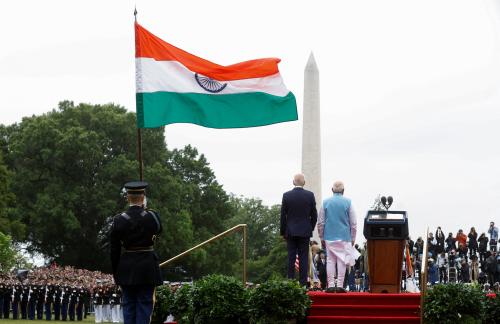Editor’s Note: Following a dispute between Russia and Ukraine, Gazprom halted natural gas shipments through Ukraine, prompting shortages across Europe and growing calls of alarm. In an interview on the Diane Rehm Show, Clifford Gaddy discusses the essence of this dispute and the risks for Russia’s reputation.
Diane Rehm: From your perspective, explain the crux of this dispute.
Clifford Gaddy: The crux of the dispute is exactly what Stefan has described. If we limit ourselves to the formal issue of the pricing, Russia has a real case. There is, of course, no real reason economically why Russia should be asked to subsidize the delivery of natural gas to other countries, even on a slower schedule. You can raise the price whenever you want, and if these countries can’t pay that high price immediately, they can borrow to pay that price. So Russia has a case. I think the real issue here is the way in which Russia is ultimately dealing with its Western European or the consumers of the gas that goes through Ukraine. And I think here, Russia has behaved in a way which legally may be fine. It may be legally correct. But I think in terms of as a business enterprise it’s horrible the way they have treated their customers, because Russia has pledged to deliver a product, natural gas, to Western Europe. It is now blaming, if you like, a subcontractor, Ukraine, for interfering with this. Well I ask you, if you had contracted with someone to renovate your house, with certain things produced, and certain due dates, and all of a sudden the contractor comes back to you and says he can’t do it because his plumber or his electrician is behaving badly, you don’t accept that. He needs to deal, on his own, with the subcontractor, and the same thing goes for Russia with Ukraine. Its real responsibility is to the consumers in Western Europe and it’s not living up to that and it’s going to hurt its reputation tremendously.
Diane Rehm: So considering the ongoing difficulties between Russia and Ukraine, would you say that this could have been predicted, this current crisis?
Clifford Gaddy: Something like this could have been predicted, undoubtedly. I think, Nicholas Burns is right in pointing out the political context of this, and the objections Russia has to Ukraine being a member of NATO. And I think it’s really about NATO and not about the EU. You have to realize that Russia’s, and I really should talk about Putin rather than Russia, Putin’s obsession is to make Russia as independent as possible in its policy making. And it cannot be dependent on, especially, the West. He has achieved a financial independence from the West that was not there before by building up his huge foreign currency reserves and others. But if you look at the situation, Russia’s great lever, in its foreign policy, is energy, as Thomas pointed out. But without control of pipelines, or the method by which you deliver that energy to the rest of the world, you’re pretty hopeless. So Russia’s real concern, I think, is about the pipelines through Ukraine and the prospect that the Russian flow of its main source of wealth, and therefore influence in the world, goes through a NATO member. That’s unacceptable, and I believe that the Russians will, to the last breath, try to avoid that outcome, and that’s really what I think this is about.
Diane Rehm: What could this mean as far as prices of energy, not only in Eastern/Western Europe, but around the world?
Clifford Gaddy: It will have only minimal effects, if any at all, on the global energy situation. The price of natural gas globally – there is no single world price, but it’s determined specifically in contracts between suppliers and producers, this is in contrast to the situation with oil. And in fact, the natural gas price tends to be linked to the world oil price, though with a lag. So it doesn’t react day by day, as we see with the oil prices. So you could say that, in general, any impact on any energy consumption ultimately might affect the world oil price in some indirect way. But it’s a very small effect, if at all, and it will only play out over time.



Commentary
The Russia-Ukraine Natural Gas Battle
January 7, 2009